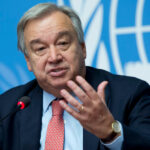Afghanistan, a land rich in culture and historical heritage, is one of the countries in the world that holds some of the oldest and most valuable cultural artifacts and historical buildings. These heritages are not only a source of pride for Afghans but also hold special significance for international tourists and historians. Preserving these cultural assets is important not only for the protection of historical artifacts but also as a vital source of economic development for Afghanistan. The promotion of tourism can bring about significant changes in the country’s economic, social, and cultural sectors.
In the past few decades, due to wars and political instability, Afghanistan has lost many opportunities for growth and development in various fields. This instability has had profound effects, especially on the country’s historical and cultural heritage. The destruction of the Buddha statues in Bamiyan, the damage to the historical buildings in Herat, and the deterioration of historical homes in old Kabul are just a few examples that demonstrate how Afghanistan’s valuable assets have become victims of wars and neglect. Now that security has returned to the country, the preservation and restoration of these heritages are a major responsibility for the Afghan caretaker government and international organizations.
Cultural heritages not only reflect a nation’s history and identity but also serve as a key foundation for Afghanistan’s tourism industry. Showcasing Afghanistan’s beauty and historical heritage to the world can attract many tourists, which will, in turn, play a major role in the country’s economic growth. In this regard, it is essential that cultural heritages are protected and restored to promote tourism. This will not only foster national pride but will also encourage international tourists to visit Afghanistan’s historical sites and witness the rich history and culture of the country.
The preservation of Afghanistan’s historical heritage is a shared responsibility of both the government and the people. The government must take serious steps in this regard. Passing laws for the protection of historical sites and collaborating with international experts are essential steps. Likewise, increasing awareness in schools and universities about the value of cultural heritage can highlight the importance of these historical sites among the younger generation. This will also contribute to strengthening national unity and solidarity.
Alongside the government, international organizations must also assist in the preservation and restoration of Afghanistan’s cultural heritage. UNESCO, the international organization for cultural heritage, can play an important role in this area. The support of UNESCO and other international aid organizations is crucial for the restoration of historical buildings and ancient sites in various parts of Afghanistan. Moreover, these organizations can work to further promote the global recognition of Afghanistan’s historical heritage.
The tourism industry is a vital source of economic growth worldwide. Many countries grow their economies through tourism, creating job opportunities for their people. Afghanistan, too, can carve out a unique place in tourism by leveraging its rich cultural heritage and natural beauty. Cities like Bamiyan, Herat, Ghazni, and Kabul are especially renowned for their historical and cultural landmarks. If the government and private sector work together to restore and promote these regions, Afghanistan can achieve significant progress in its economy through tourism.
The private sector also has an important role to play in this area. Investors and entrepreneurs can contribute to the restoration of historical sites and the development of tourism. This will not only bring financial benefits but will also help reduce unemployment and improve the quality of life for people in the country. Establishing hotels, restaurants, tourist guides, and other related services can become another source of economic growth in this context.
In conclusion, the preservation of Afghanistan’s cultural heritage and the promotion of tourism are not only significant from a historical perspective but also essential for the country’s economic development. The government, international organizations, the private sector, and the people of the country must work together to protect and promote these assets. If these efforts are properly carried out, Afghanistan can establish itself as a unique tourist destination on the global stage, thereby fostering economic growth and improving the quality of life for its people.











